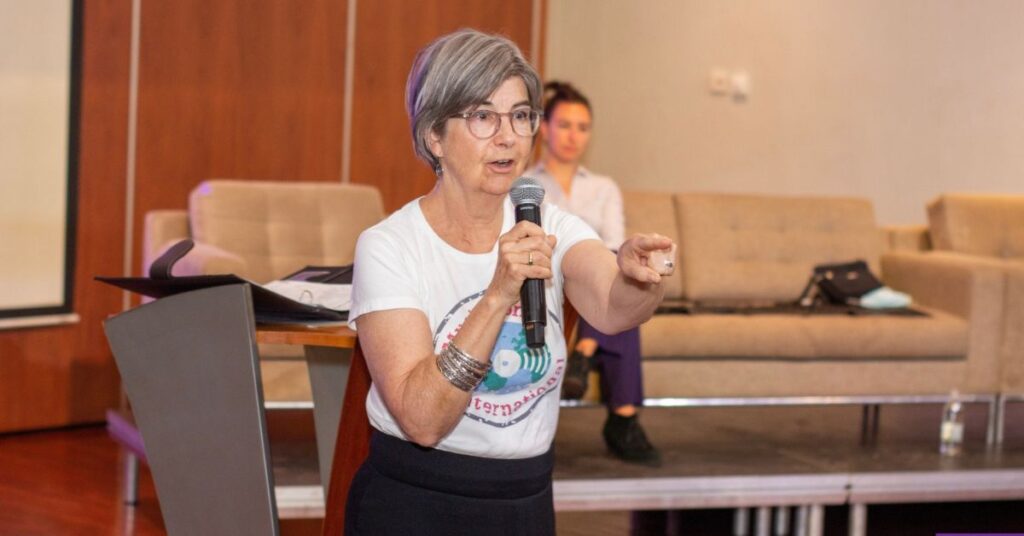Introduction
Booking gigs is a crucial aspect of a musician’s career, whether you’re just starting out or have been in the industry for years. However, there are common pitfalls that many musicians encounter when booking gigs that can hinder their success. This guide aims to shed light on these mistakes and provide actionable advice to help you avoid them, ensuring that you not only book more gigs but also make the most out of every opportunity.
The Importance of Avoiding Common Pitfalls
Understanding the common mistakes musicians make when booking gigs is essential for anyone looking to build a successful career in music. Avoiding these pitfalls can save you time, effort, and frustration, and ultimately lead to more opportunities and better relationships with venues and promoters.
How This Guide Can Help You Succeed
This guide is designed to help you navigate the gig booking process more effectively. By learning from the mistakes of others, you can refine your approach, increase your chances of landing gigs, and build a reputation as a professional and reliable artist.
Common Mistake #1: Lack of Research
Why Research is Crucial
One of the most common mistakes musicians make when booking gigs is not doing enough research. Knowing the venue, the audience, and the overall vibe of the event is essential to ensure that you are a good fit. Without this information, you may find yourself playing in front of the wrong crowd or at a venue that doesn’t suit your style.
How to Conduct Effective Research
Start by researching the venues you’re interested in. Look at their past events, the type of acts they book, and the size of the audience they attract. Connect with other musicians who have performed there to get insights. Additionally, reach out to the venue staff to ask questions about their expectations and technical requirements.
Common Mistake #2: Poorly Written Proposals
Elements of a Good Proposal
Your proposal is often the first impression you make on a venue or promoter, so it needs to be professional and well-crafted. A good proposal should include a brief introduction about yourself, your music, and why you would be a good fit for the venue. Include links to your music, videos of live performances, and any press coverage you’ve received. For more details on crafting the perfect gig proposal, check out our article on How to Create a Winning Gig Proposal.
Examples of Poor Proposals and How to Improve Them
A poorly written proposal might be vague, overly casual, or lack important information. For instance, a proposal that simply says, “Hi, I want to play at your venue” without any supporting details will likely be ignored. Instead, aim for a more detailed approach: “Hi, my name is [Your Name], and I am a [genre] musician with [number of years] of experience. I believe my music would resonate with your audience because [reason]. Here are some links to my recent performances and press coverage.”
Common Mistake #3: Ignoring Follow-Up
The Importance of Following Up
After sending your proposal, it’s crucial to follow up. Many musicians assume that if they don’t hear back right away, the venue isn’t interested. However, venues often receive many inquiries, and your initial message might get lost in the shuffle. Following up shows persistence and professionalism.
Best Practices for Effective Follow-Up
Wait about a week after sending your initial proposal before following up. Your follow-up message should be polite and concise. Simply remind the venue of your previous email and express your continued interest. Avoid being pushy or impatient, as this can harm your chances.
Common Mistake #4: Overlooking Technical Requirements
Understanding Venue Needs
Each venue has its own technical requirements, from sound systems to stage setups. Failing to understand these needs can lead to a poor performance or, in some cases, the cancellation of your gig. It’s important to communicate with the venue about their equipment and what you need to bring.
Preparing Your Technical Rider
A technical rider is a document that outlines your technical needs for a performance, including the type of equipment you use, how you want your sound mixed, and any special requirements you may have. Providing a clear and concise rider to the venue helps ensure that everything runs smoothly on the day of the gig.
Common Mistake #5: Failing to Promote the Gig
Strategies for Effective Promotion
Booking a gig is just the first step; promoting it is equally important. Many musicians fail to put enough effort into promotion, which can result in low attendance. Start promoting your gig as soon as it’s confirmed. Create eye-catching posters, share the event on your social media channels, and consider reaching out to local media for coverage.
Utilizing Social Media and Other Channels
Social media is a powerful tool for promoting your gigs. Create a Facebook event, post regularly on Instagram and TikTok, and engage with your followers by sharing behind-the-scenes content. Additionally, reach out to local blogs, radio stations, and other platforms that cater to your target audience to help spread the word.
Common Mistake #6: Not Being Professional
Professionalism in Communication
Professionalism is key in all aspects of booking gigs, from your initial outreach to your follow-up communications. Use proper grammar and spelling in your emails, be respectful in all your interactions, and make sure you’re always on time for meetings and sound checks.
Professionalism During the Gig
Professionalism doesn’t end once you’ve booked the gig. On the day of the event, arrive early, be courteous to the venue staff, and ensure that your performance is well-rehearsed. After the gig, thank the venue and the audience, and consider following up with a thank-you email.
How to Avoid These Mistakes
Tips for Success
To avoid these common mistakes, always do your research, craft thoughtful proposals, follow up consistently, understand the technical requirements of each venue, promote your gigs effectively, and maintain professionalism throughout the entire process.
Resources and Tools for Musicians
There are numerous resources available to help you improve your gig booking process. Online platforms like Sonicbids, ReverbNation, and Bandcamp can connect you with venues and promoters. Additionally, consider using tools like Canva for creating promotional materials and Hootsuite for managing your social media campaigns. For broader career growth, don’t miss our guide on How to Build a Network in the Music Industry.
Recap of Key Points
Booking gigs successfully requires more than just talent; it requires careful planning, research, and professionalism. By avoiding common mistakes like lack of research, poorly written proposals, ignoring follow-ups, overlooking technical requirements, failing to promote the gig, and not maintaining professionalism, you can increase your chances of landing gigs and building a successful music career.
Encouragement to Implement Best Practices
Remember, booking gigs is an ongoing learning process. Each experience teaches you something new. By implementing the best practices outlined in this guide, you’ll be well on your way to booking more gigs and taking your music career to the next level. Keep refining your approach, stay persistent, and success will follow.
Your future in music is waiting—start building your network now! Ready to take your music career to the next level? Subscribe to our online program Anyone Can Book a Gig or grab a copy of our textbook to learn more about securing gigs and building a successful music career. Don’t wait—start your journey today!


